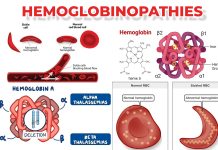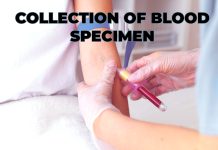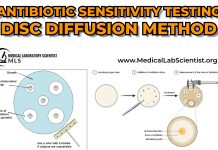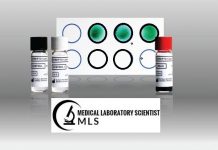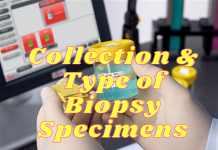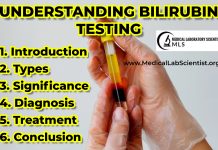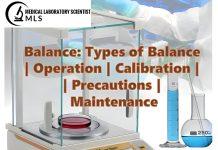ANTI-SPERM ANTIBODY TEST:
The Anti-Sperm Antibody (ASA) test is a diagnostic test designed to detect the presence of these antibodies in a person’s reproductive system. Various methods are available to detect sperm antibodies, including agglutination tests, sperm immobilizing antibody tests, and tests for cytotoxic antibodies. Anti-sperm antibodies are antibodies produced by the immune system that can target and bind to sperm cells. These antibodies can interfere with sperm function and fertility, and they are often tested to assess potential causes of infertility. Here’s a procedure for testing for anti-sperm antibodies:
Purpose of Anti-Sperm Antibody:
-
Evaluation of Male Infertility: The ASA test is often used to investigate the potential causes of male infertility. When antibodies develop against sperm, they can interfere with sperm function, including their ability to move and fertilize an egg. Understanding the presence of anti-sperm antibodies helps healthcare providers identify whether these antibodies may be contributing to a man’s infertility.
-
Identification of Immunological Causes: Anti-sperm antibodies can be produced due to various factors, including trauma, infection, surgery, or autoimmune disorders. This test helps in identifying immunological causes of male infertility. For example, it can distinguish between primary immune infertility, where the immune system attacks healthy sperm, and secondary immune infertility, where antibodies may be produced in response to a previous injury or infection.
-
Guidance for Treatment: The results of the ASA test can guide the choice of treatment for male infertility. If anti-sperm antibodies are identified as a contributing factor, healthcare providers can tailor treatment options to address this specific issue. Treatment may involve assisted reproductive technologies, immunosuppressive therapy, or other interventions.
-
Assessment of the Impact of Surgery or Trauma: The ASA test can be used to assess the impact of previous surgeries or trauma on male fertility. Surgical procedures, such as vasectomy reversals or treatment of injuries, can sometimes trigger an immune response that leads to the production of anti-sperm antibodies.
-
Research and Monitoring: In some cases, the ASA test is used in research studies to better understand the prevalence and impact of anti-sperm antibodies on fertility. It can also be used to monitor the effectiveness of certain treatments in reducing antibody levels.
Sample Collection:
There are two primary types of samples that can be collected for this test: semen and blood. The choice of sample depends on the patient’s clinical presentation and the suspected cause of infertility. Here’s how each type of sample is collected:
-
Semen Sample Collection:
-
Abstinence: Prior to sample collection, patients are often instructed to abstain from ejaculating for a specific period (usually 2 to 5 days) to ensure a sufficient sperm count in the sample.
-
Sample Collection: The patient collects a semen sample by ejaculating into a sterile, wide-mouthed container provided by the laboratory or healthcare provider. It’s crucial to avoid contamination of the sample with saliva, lubricants, or any other foreign substances.
-
Sample Transport: The sample should be transported to the laboratory as quickly as possible after collection, typically within 1-2 hours. It is important to keep the sample at body temperature (close to 98.6°F or 37°C) during transport.
-
-
Blood Sample Collection:
-
- Venipuncture: A blood sample is obtained by a healthcare professional through venipuncture. This involves inserting a needle into a vein, typically in the arm, to collect a sample of blood.
- Serum Separation: After blood collection, the sample is usually allowed to clot, and then the serum (the liquid portion of the blood) is separated from the cellular components by centrifugation.
- Sample Transport: The serum sample is typically stored in a sterile container and transported to the laboratory for analysis.
Separation and Preparation of Donor Sperm:
TESTING FOR ANTI-SPERM AGGLUTINATING AND IMMOBILIZING ANTIBODIES:
- Inactivate complement in both test and normal serum by incubating at 56°C for 30 minutes. Proceed according to the provided table.
- Add 1 μl of 5% FCS made in RPMI 1640 to all the wells in the control and test, except column A of the microtiter plate.
- Dispense 1 μl of normal serum in column A of rows 1 and 2.
- Dispense 1 μl of test serum in column A of rows 3 and 4, utilizing two rows for each test serum.
- Create doubling dilutions of the test and normal serum in each row with 5% FCS made in RPMI 1640 (i.e., 1:2, 1:4, 1:8, 1:16, 1:32).
- Add 1 μl of donor sperm to each well.
- Mix well on a shaker for 2 minutes.
- Incubate at 37°C for 30 minutes.
- Observe under a microscope for agglutination.
- Add 2 μl of Rabbit Complement to rows 2, 4, 6, 8, 10 (the crossed rows) in all wells, leaving well A to test for antisperm immobilizing antibodies.
- Incubate at 37°C for 1 hour.
- Observe under a microscope for agglutination.
These tests are vital in identifying anti-sperm antibodies and can play a significant role in the evaluation of male infertility.
Interpretation:
-
Negative Result:
- Semen Sample: If the test of the semen sample shows no significant presence of anti-sperm antibodies, it is considered negative. This suggests that the patient’s fertility is not being affected by antibodies that target sperm.
- Blood Sample: A negative result from a blood sample means that there are no detectable anti-sperm antibodies in the patient’s serum, indicating that the immune system is not producing antibodies against sperm.
-
Positive Result:
- Semen Sample: A positive result in the semen sample indicates the presence of anti-sperm antibodies on or in the sperm. This may suggest a potential cause of fertility issues, as these antibodies can interfere with sperm function and the ability to fertilize an egg.
- Blood Sample: A positive result in the blood sample suggests the presence of anti-sperm antibodies in the bloodstream. This is less common but may still be relevant in some cases. Elevated levels of anti-sperm antibodies in the bloodstream can potentially affect sperm function.



